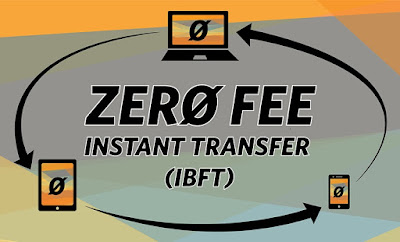 |
| Image source: http://www.freemalaysiatoday.com/ |
All About Permodalan Nasional Berhad (PNB)
Permodalan Nasional Berhad (PNB) Incorporated on 17 March 1978, PNB was conceived as a pivotal instrument of the Government's New Economic Policy to promote share ownership in the corporate sector among the Bumiputera (son of the soil), and to develop opportunities for deserving Bumiputera professionals to participate in the creation and management of wealth.
Permodalan Nasional Berhad (PNB) has emerged as the country's premier investment institution. As an investment vehicle for the Yayasan Pelaburan Bumiputra (YPB), the core function of PNB is to evaluate, select and acquire a sound portfolio of shares in limited companies with growth potential. Being an organisation that specialises in investment, PNB in essence acts as a warehouse, whereby shareholdings in these limited companies are placed in trust funds and sold to unit holders in the form of smaller units.
From its first unit trust scheme, the Sekim Amanah Saham Nasional (ASN) launched on 20 April 1981, right up to its latest product, Amanah Saham Bumiputera 2 (ASB 2) launched on 2 April 2014, PNB through its wholly-owned subsidiary, Amanah Saham Nasional Berhad, has been instrumental in creating a paradigm shift and changing the mindset of Malaysians, particularly the Bumiputera community, in the areas of savings, investment and financial planning, and the way they view risks and returns on investment. The overwhelming response from Malaysians from all walks of life and income strata towards PNB's unit trust funds has been manifested in PNB's ability to mobilise more than 11.6 million accounts to date.
With the money generated from the public, PNB has acquired many large and strategic companies, and many are industry leaders in their own respective fields, such as financial, insurance, plantation, property, automotive, logistics, infrastructure, pharmaceuticals and chemicals. The drive for value has prompted PNB to undertake a series of corporate exercises, where companies under the PNB portfolio were reorganised, merged or acquired to increase their operational efficiency and to attain synergistic benefits, thus enabling PNB to achieve its aim for consistent returns.
Permodalan Nasional Berhad (PNB) has emerged as the country's premier investment institution. As an investment vehicle for the Yayasan Pelaburan Bumiputra (YPB), the core function of PNB is to evaluate, select and acquire a sound portfolio of shares in limited companies with growth potential. Being an organisation that specialises in investment, PNB in essence acts as a warehouse, whereby shareholdings in these limited companies are placed in trust funds and sold to unit holders in the form of smaller units.
From its first unit trust scheme, the Sekim Amanah Saham Nasional (ASN) launched on 20 April 1981, right up to its latest product, Amanah Saham Bumiputera 2 (ASB 2) launched on 2 April 2014, PNB through its wholly-owned subsidiary, Amanah Saham Nasional Berhad, has been instrumental in creating a paradigm shift and changing the mindset of Malaysians, particularly the Bumiputera community, in the areas of savings, investment and financial planning, and the way they view risks and returns on investment. The overwhelming response from Malaysians from all walks of life and income strata towards PNB's unit trust funds has been manifested in PNB's ability to mobilise more than 11.6 million accounts to date.
With the money generated from the public, PNB has acquired many large and strategic companies, and many are industry leaders in their own respective fields, such as financial, insurance, plantation, property, automotive, logistics, infrastructure, pharmaceuticals and chemicals. The drive for value has prompted PNB to undertake a series of corporate exercises, where companies under the PNB portfolio were reorganised, merged or acquired to increase their operational efficiency and to attain synergistic benefits, thus enabling PNB to achieve its aim for consistent returns.
Source: http://www.pnb.com.my/






